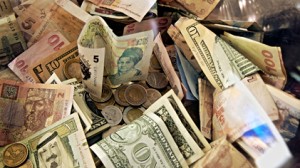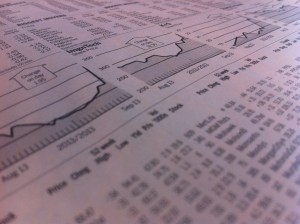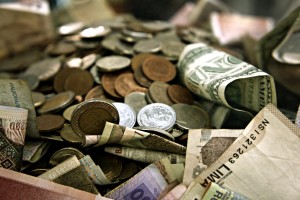Interest rate policy in China is decided by the Monetary Policy Committee of The People’s Bank of China (PBOC). The committee recently cut its benchmark interest rate by 0.25% and lowered the benchmark deposit rate from 3.5% to 3.25%.
Click here to continue readingThe main topic of discussion about the Japanese economy over the last twenty years has been its deflation and low economic growth. Japan’s last big economic policy bet has been its quantitative easing (QE) program launched in April 2013.
Click here to continue readingIn short, we pointed out that the depreciation of the yen was due to an increase in the monetary supply in Japan. This increased supply made it less profitable to hold the currency, and as a result, market participants increased their short positions on the yen against a backdrop of increasing dollar strength.
Click here to continue readingThe Chinese stock market’s turbulent journey continues and it’s unlikely to end any time soon. To understand the problem faced by the Chinese government, it’s important to highlight a few points that provide a different perspective.
Click here to continue readingCreditors of private and government debt generally perform credit analyses, first to grant a loan or purchase bonds, and then eventually to evaluate debt restructurings.
Click here to continue readingIn the West we have the notion that gambling and the concept of fortune are ingrained in Chinese culture. This is probably because gambling carries implicit notions of individualism, such as property and risk. Individualism that is a quality of the human condition but has never before been experienced by this Asian country with the same vitality as is common in the West.
Click here to continue readingThe exchange rate in Japan has settled around 123.70 yen per US dollar. [1] When quantitative easing (QE) was launched in Japan in April 2013, the Japanese yen (JPY) was trading at around 95 yen per USD.
Click here to continue readingGreece’s delayed payment on its debt, its possible default, and an eventual exit from the euro have been some of the most widely covered news stories in the media over the last weeks. What would be the implications of a Greek default? What would be the implications of an eventual Greek exit from the euro?
Click here to continue readingMuch has changed since the Greek rescue back in February/March, 2012. The negotiation power of both parties has changed considerably. The structure of Greek debt holders flipped between private and public.
Click here to continue readingWhen talking about economic recovery, a distinction must be made between short-term and long-term effects. We’ll label as short-term effects those that last less than a year, and as mid and long term those that last more than a year. In practice, three to five years are needed to determine if effects are long lasting or not.
Click here to continue readingGet our free exclusive report on our unique methodology to predict recessions










